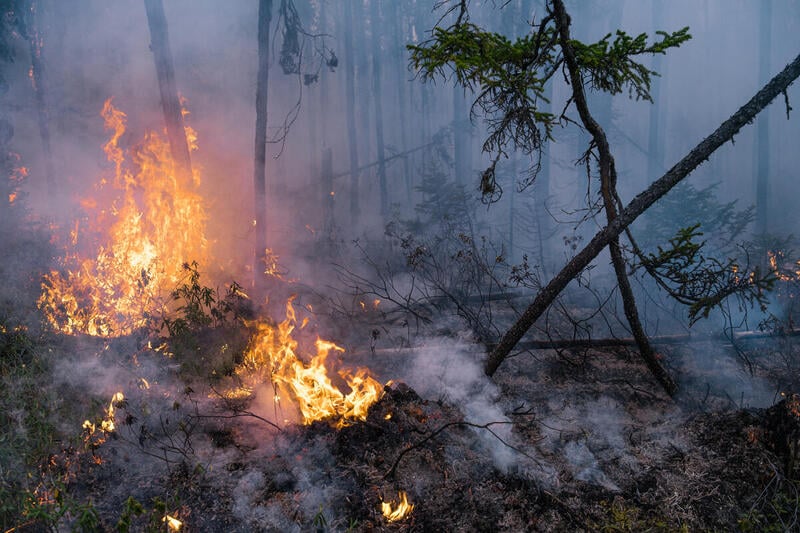Toronto – Protecting and restoring forests and urgently revamping the global food system through dietary change are the key solutions to the escalating nature and climate crisis, an authoritative UN report has found.
The Intergovernmental Panel on Climate Change (IPCC) report reveals that since the pre-industrial period the temperature over land has already increased 1.53°C compared with the global average of a 0.87°C increase, taking into account air above ocean and land. The temperature rise is impacting food security and driving desertification and land degradation.
“The IPCC report confirms that by reducing meat consumption, we can not only significantly reduce greenhouse gas emissions but also fight food insecurity and protect our lands,” said Yasmeen Peer, Nature and Food Campaigner at Greenpeace Canada. “Our impact on land is mostly caused by industrial agriculture and meat production. Animal agriculture causes 14% of global emissions. Defending and restoring our forests and changing our food system by eating less meat will help turn the climate and biodiversity crisis into new hope for nature and people. We need to make some choices because we cannot use up our land twice and we’re already over-using it.”
The IPCC’s special report on Climate Change and Land warned that more than a quarter of land is subject to “human-induced degradation” but multiple solutions can boost both mitigation and adaptation.
“The challenge is great, but the solutions are many. Changing the way we produce food and what we eat will protect our climate and promote food security. By shifting to more plant-based, healthy and accessible ecological farming practices, we can free up vital land space being used for animal feed and grazing and fight the impact on the climate. Canada’s new food guide’s advice on eating habits and healthy food choices is definitely a step in the right direction. It is necessary to raise awareness among people about the importance of the local ecosystem, land, and the link between food, health and the climate issue,” said Marie-Josée Beliveau, Nature and Food Campaigner at Greenpeace Canada.
Other findings in the IPCC report:
- 23% of human greenhouse gas emissions stem from deforestation, wildfires and agriculture but land can act as a powerful carbon sink to help mitigate the worst of climate change.
- Better land-use alone will not stop climate change. Delaying the phase out of fossil fuels and shifting mitigation to the land sector will increase the risk of climate impacts and food insecurity.
- Emissions from the food system as a whole, including production and consumption, represent up to 37% of total global human-induced GHG emissions.
- The consumption of meat has more than doubled in the past 60 years as land was converted to agricultural use at an unprecedented rate in human history.
- About 2 billion adults are overweight or obese, but 821 million people are still undernourished, highlighting the need to reform the global food system.
-30-
For more information, please contact:
Mojgan Mohammad, Communication officer, Greenpeace Canada
[email protected] , +1 514 400-3313
Photos can be accessed here



